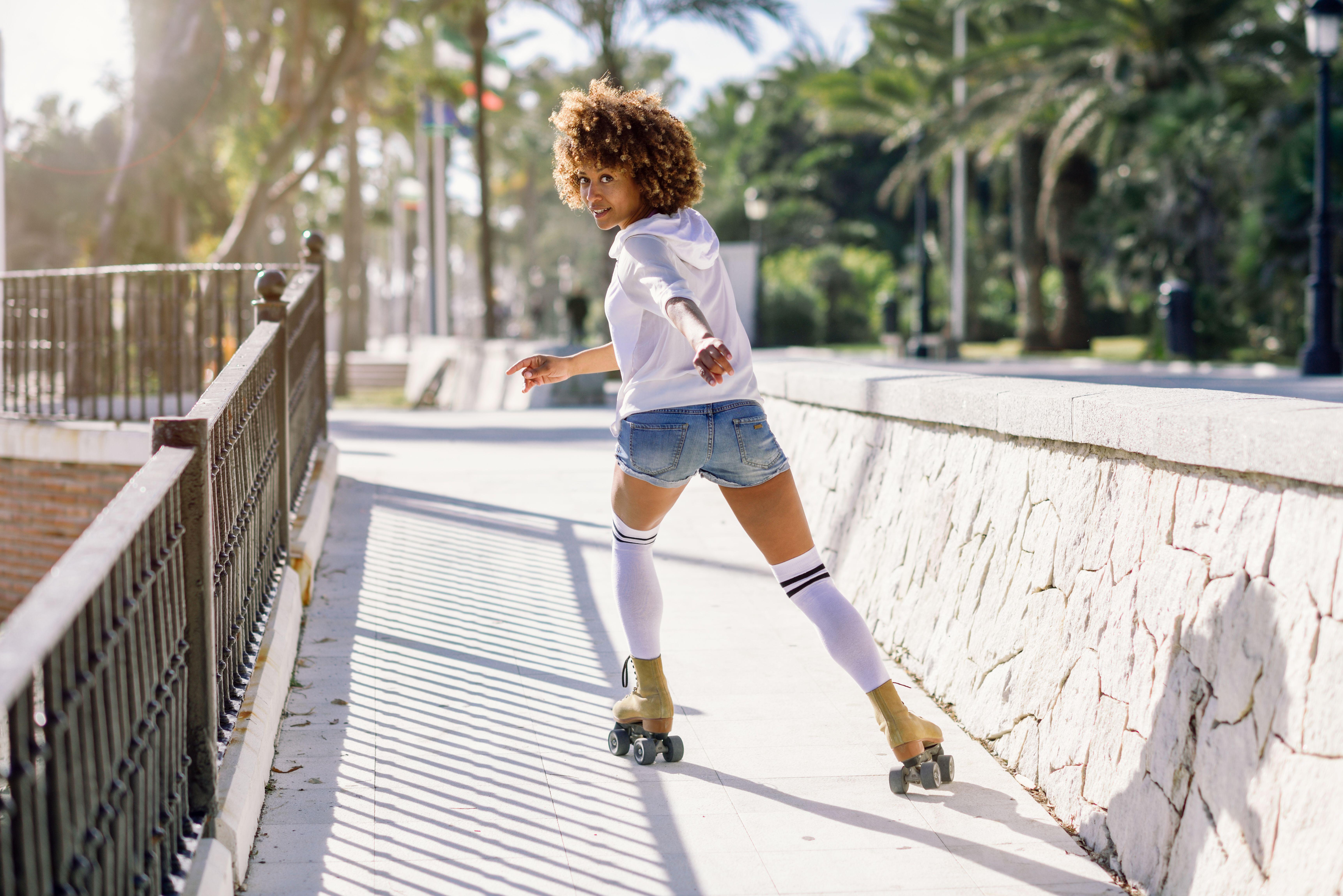Roller-skating, Farrah Fawcett hair and disco: Why are the 1970s back in fashion?
Prudence Wade asks a pop culture expert and a psychologist why Seventies nostalgia is so big right now.

You might have noticed a few things here and there – maybe it was Tony Blair’s new mullet or Harry Styles wearing sweater vests – but put them all together, it’s hard to ignore the growing trend for everything retro.
Farrah Fawcett hair tutorials are big on TikTok curtain bangs (fringes!) are back, and Gucci has well and truly brought Seventies style to the mainstream – but it’s not just retro-inspired fashion and beauty we’ve become obsessed with. It seems like everyone’s learning (or relearning) how to roller-skate, we’ve actually become excited by seaside staycations, and now gameshow Blankety Blank is set to return to our TV screens, with Bradley Walsh taking on hosting duties.
Our obsession with nostalgia isn’t new news – it’s human nature to hark back to bygone times, looking at them through rose-tinted glasses. Fashion also works in cycles, with familiar trends coming up again and again – but it certainly feels like the 1970s are more popular right now than we ever could have predicted.
Pop culture expert Nick Ede suggests Gen Z are responsible for many of these trends.
“The Gen Z, TikTok generation want to find something new, and it feels to me like they’ve exhausted their own archives of their own experiences,” he says. “So what they’re doing is mining the past and looking at various things they think are really cool, and replicating them in their own modern way.”
Part of this is the cycle of trends we’re all used to. “It’s all about pretending you’ve discovered something new, but it’s actually been about for years – it’s about reinvention and a new way of showing off something old,” says Ede.
This isn’t even the first time Seventies beauty trends have made a comeback – Ede references Madonna’s 2005 Confessions On A Dance Floor album, where she also styled Farrah Fawcett flicks in her hair.
Ede also suggests the pandemic has amplified our love of all things 1970s. He says: “Because of the pandemic, everybody has been at home, so that means people – especially content creators – haven’t been able to travel, they haven’t been able to do what they normally do, they haven’t been able to create, they’re stuck in their houses. So they’ve had a lot more time to maybe watch Netflix or Amazon and find shows like The Golden Girls, which have some brilliant retro looks.
“They’ve had that time to go back and see a bit more about what culture was before they were born, and they’re taking the really great elements of the Seventies and building them back up to today.”
Ede also suggests many people have “lost their identity” due to Covid-19, and this “mining of the past and retro, to create modern imagery” is a way of getting that back.
There’s a reason why older generations have been getting in on the trends as well. “Nostalgia is not ‘living in the past’, but rather reflecting on it with a sense of affection,” explains chartered psychologist Dr Audrey Tang, author of The Leader’s Guide To Resilience (Pearson, £14.99). “It can generate feelings of warmth and comfort, and that’s generally a very good thing.”
Tang suggests the pandemic is behind this affection for the 1970s. “The world has been uncontrollable this year – and right now, we are seeking things that we can rely on,” Tang explains. “For me, it’s reruns of Columbo because I know what’s going to happen, I can predict it, I feel in control – I feel safe! Nostalgia can work as a defence mechanism, which protects us against fear or sadness.”
Nostalgia, she says, tends to occur “when we are going through a transitional period, almost as a way of making sense of the apprehension of the unknown” – something many of us can relate to right now.
While there are benefits to nostalgia and getting in on retro trends from the past – such as connecting us with others or reminding us “the present is temporary”, says Tang – we might also want to be wary of getting trapped in nostalgia. “It is also important that when we reflect on the past, we learn from it actively as well – otherwise, again, we might simply risk ‘wallowing’,” says Tang. “So perhaps as you embrace what’s gone with a sense of fondness, use that positive mindset to also reflect on how far you’ve come.”
Whether you’re new to these retro trends, or are using them to fondly revisit the past, Ede says: “Weirdly, it’s bringing generations together.”
A lot of current pop music – whether it’s from Dua Lipa, Miley Cyrus or Kylie Minogue – is reminiscent of 1970s disco. “I think it’s a really great thing that’s happening,” says Ede. “It’s great for people of an older generation to feel that they can relate more to popstars like Dua Lipa, because she’s got that disco riff they remember dancing to 20 or 30 years ago. I think it’s bringing people together in a really nice way.”
Bookmark popover
Removed from bookmarks